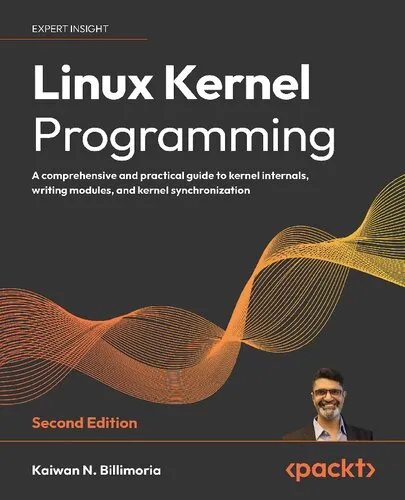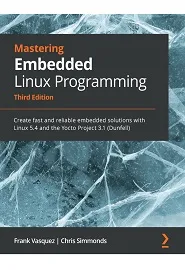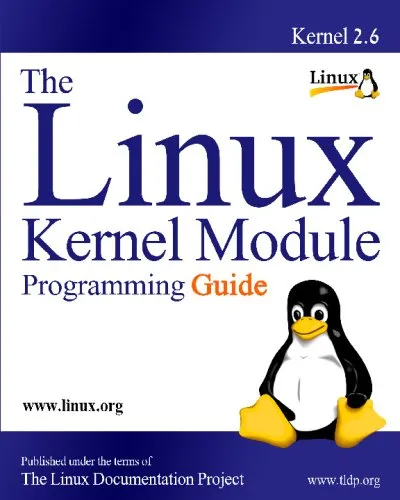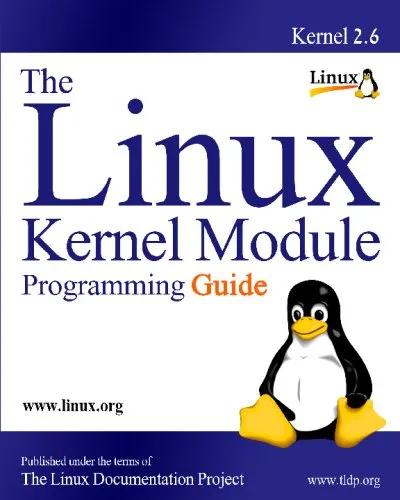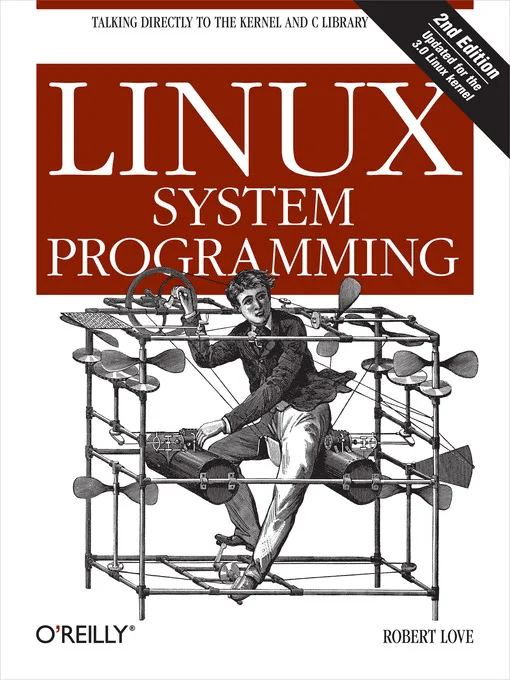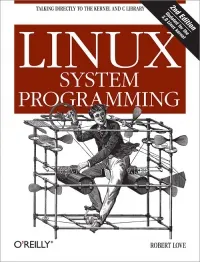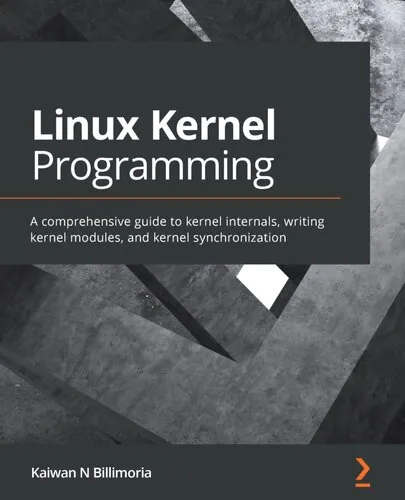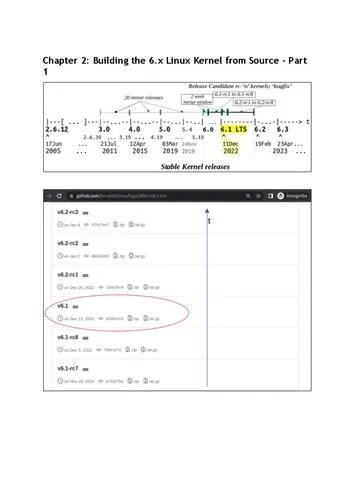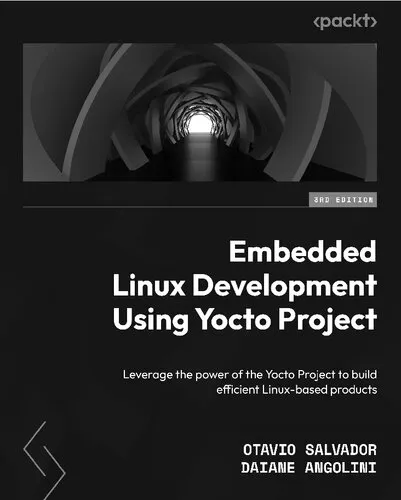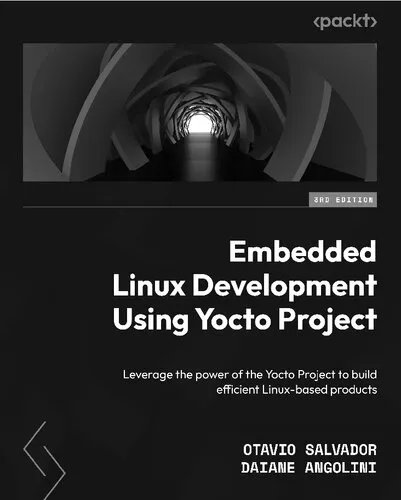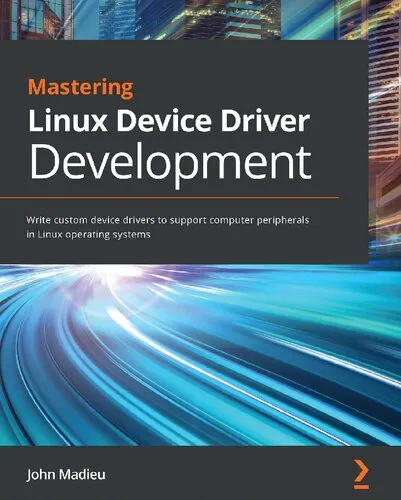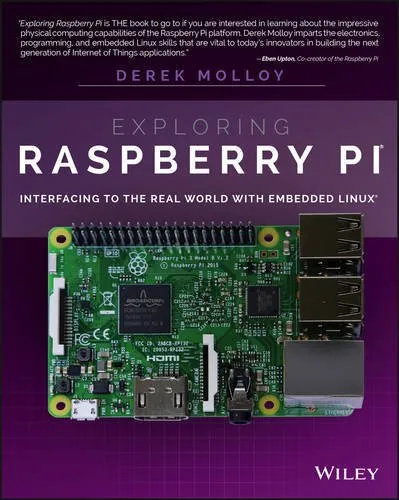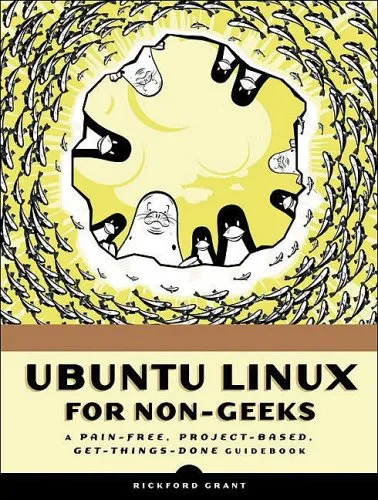Linux Kernel Programming: A comprehensive and practical guide to kernel internals, writing modules, and kernel synchronization
4.5
Reviews from our users

You Can Ask your questions from this book's AI after Login
Each download or ask from book AI costs 2 points. To earn more free points, please visit the Points Guide Page and complete some valuable actions.Related Refrences:
Introduction to Linux Kernel Programming
Welcome to a comprehensive guide specifically designed for developers eager to dive into the world of Linux kernel programming. This book, "Linux Kernel Programming: A Comprehensive and Practical Guide to Kernel Internals, Writing Modules, and Kernel Synchronization," seeks to demystify the intricate workings of the Linux kernel, offering insights and guidance for budding and experienced programmers alike.
Detailed Summary of the Book
The Linux kernel is lauded for being the backbone of myriad operating systems around the globe. Understanding its internals not only helps in harnessing its power effectively but also propels programmers towards writing efficient and superior quality code. This book begins by setting the foundation with a thorough introduction to the kernel architecture and gradually delves into intricate kernel topics such as memory management, file systems, device drivers, and process management.
Moreover, the book is rich with practical examples and hands-on exercises, enabling readers to solidify their understanding by applying concepts to real-world scenarios. The focus on kernel modules allows developers to extend the kernel's capabilities without recompiling or even rebooting the entire operating system. Along with modules, detailed explanations of kernel synchronization methods ensure that developers can design robust, fault-tolerant systems.
Key Takeaways
- In-depth understanding of Linux kernel architecture and its core functionalities.
- Ability to write and manage loadable kernel modules effectively.
- Comprehensive knowledge of kernel synchronization mechanisms to prevent race conditions and ensure data integrity.
- Insights into memory management, file systems, and process control within the kernel macrocosm.
Famous Quotes from the Book
"Mastering the Linux kernel is not just an art; it is a step towards shaping robust and future-ready computing solutions."
"The challenge of kernel programming lies not in complexity, but in understanding its elegance and structure."
"Synchronization is the key to unlocking true parallelism within the kernel."
Why This Book Matters
In today's technology-driven world, the Linux operating system powers everything from small IoT devices to high-performance computing clusters. As more industries embrace open-source solutions, the demand for skilled Linux kernel programmers is on the rise. This book stands out by not just explaining kernel concepts theoretically, but by offering a practical, hands-on approach critical for career advancement in this field. Whether you're developing embedded systems, managing server infrastructure, or contributing to open source, understanding the Linux kernel empowers you to innovate and optimize like never before.
Moreover, learning Linux kernel development ensures a deep understanding of operating system principles, which is invaluable regardless of whether you're working with Linux specifically. This knowledge helps in building systems that are efficient, scalable, and secure.
Embrace the journey of unraveling the Linux kernel with this comprehensive guide. Equip yourself with the knowledge to explore the vast possibilities that open-source technologies offer.
Free Direct Download
You Can Download this book after Login
Accessing books through legal platforms and public libraries not only supports the rights of authors and publishers but also contributes to the sustainability of reading culture. Before downloading, please take a moment to consider these options.
Find this book on other platforms:
WorldCat helps you find books in libraries worldwide.
See ratings, reviews, and discussions on Goodreads.
Find and buy rare or used books on AbeBooks.
1697
بازدید4.5
امتیاز0
نظر98%
رضایتReviews:
4.5
Based on 0 users review
Questions & Answers
Ask questions about this book or help others by answering
No questions yet. Be the first to ask!
